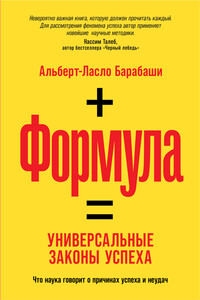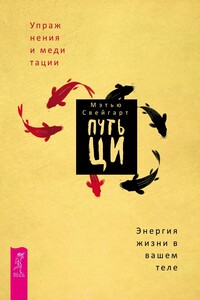Этнические конфликты - [92]
http://www.cidcm.umd.edu/inscr/mar/.
Moroff, A. (2010). Party bans in Africa – an empirical overview. Democratization 17, 4, 618-641.
Morrison, D. G., Mitchell, R. C., Paden, J. N. and Stevenson, H. M. (1972). Black Africa: A Comparative Handbook. New York: The Free Press.
Morrison, D. G., Mitchell, R. C. and Paden, J. N. (1989). Black Africa. A Comparative Handbook. Second Edition. London and Basingstoke: Macmillan Reference Books.
Mousseau, M. (2003). The Nexus of Market Society, Liberal Preferences, and Democratic Peace: Interdisciplinary Theory and Evidence. International Studies Quarterly 47, 483-510.
Muller, E. N. and Weede, E. (1990). Cross national variation in political violence: A rational action approach. Journal of Conflict Resolution 34, 624-651.
Niemela, J. K. (2008). Alykkyys, geenit ja ymparisto. Skeptikko #69, 27-40.
Nissan, E. (1996). Sri Lanka – A Bitter Harvest. Minority Rights Group International Report. London: Minority Rights Group.
Nmoma, V. (1995). Ethnic Conflict, Constitutional Engineering and Democracy in Nigeria. In H. Glickman (Ed.), Ethnic Conflict and
Democratization in Africa. Atlanta, Georgia: The African Studies Association Press.
Olcott, M. B. (1997). Kazakhstan: pushing for Eurasia. In I. Bremmer and R. Taras (Eds), New States, New Politics: Building the Post-Soviet Nations. Cambridge: Cambridge University Press.
Omaar, R. and Fleischman, J. (1991). Arab vs. African: Mauritania’s War on Blacks. Africa Report 36, 4, 35-38.
Oostindie, G. (2005). Paradise Overseas. The Dutch Caribbean: Colonialism and its Transatlantic Legacies. London: Macmillan Caribbean.
Ormrod, J. (1997). The North Caucasus: confederation in conflict. In I. Bremmer and R. Taras (Eds), New States, New Politics: Building the PostSoviet Nations. Cambridge: Cambridge University Press.
Payne, D. W. (1996). The 1996 Suriname Elections: Post-Election Report. Western Hemisphere Election Study Series, Volume XIV Study 4. http://www.parbo.com/informations/census.htm.
Peled, Y. (1992). Ethnic Democracy and the Legal Construction of Citizenship: Arab Citizens of the Jewish State. American Political Science Review 86, 2, 432-443.
Peterson, D. (2006). A Beacon for Central Africa. Journal of Democracy 17, 1, 125-131.
Philip’s Encyclopedic World Atlas. (2000). Comprehensive edition. London: George Philip Limited.
Pinker, S. (2011). The Better Angels of our Nature. Why Violence Has Declined. London: Penguin Books.
Pirie, B. (2000). The complexity of ethnic conflict in Fiji: Finding effective interventions, http://metafind.iii.com.9797.
Pool, D. (1997). Eritrea: Towards Unity in Diversity. Minority Rights Group International Report. London: Minority Rights Group.
Premdas, R. (2002). Belize: Identity and Ethnicity in a Multi– Ethnic State, http://www.cavehill.uni.edu/
Rae, D. and Taylor, M. (1970). The Analysis of Political Cleavages. New Haven and London: Yale University Press.
Rasler, K. and Thompson, W. R. (2005). Puzzles of the Democratic Peace. Theory, Geopolitics, and the Transformation of World Politics. New York: Palgrave MacMillan.
Rastogi, P. N. (1986). Ethnic Tensions in Indian Society. Delhi: Mittal Publications.
Reichmann, R. (Ed.). (1999). Race in Contemporary Brazil: From Indifference to Inequality. University Park, Pennsylvania: The Pennsylvania State University Press.
Reilly, B. (2006). Democracy and Diversity: Political Engineering in the Asia-Pacific. Oxford: Oxford University Press.
Reilly, B. (2006b). Political Engineering and Party Politics in Conflict-Prone Societies. Democratization 13, 5, 811-827.
Reynolds, V., Falger, V. S. and Vine, I. (Eds). (1987). The Sociobiology of Ethnocentrism: Evolutionary Dimensions of Xenophobia, Discrimination, Racism and Nationalism. London: Croom Helm.
Ronen, D. (1997). The Challenge of Ethnic Conflict, Democracy andSelf-Determination in Central Europe. London: Frank Cass.
Roos, J. P. (2008). Demokratia ja ethniset konfliktit Vanhasen parasta alaa. Tieteessa tapahtuu 26, 5, 60-63.
Roque, P. C. (2009). Angola’s Facade Democracy. Journal of Democracy 20, 4, 137-150.
Rosato, S. (2003). The Flawed Logic of Democratic Peace Theory. American Political Science Review 97, 4, 585-602.
Rotar, I. (2005). Ethnic conflict simmers in Southern Kyrgyzstan. Eurasia Daily Monitor Vol. 2, Issue 119 (June 20).
Rummel, R. J. (1994). Death by Government. New Brunswick, N. J.: Transaction Publishers.
Rupesinghe, K. (1988). Theories of Conflict Resolution and Their Applicability to Protracted Ethnic Conflict. In K. Rupasinghe (Ed.), Ethnic Conflict and Human Rights. Oslo: Norwegian University Press.
Rupesinghe, K. and Tishkov, V. A. (Eds). (1996). Ethnicity and Power in the Contemporary World. Tokyo: United Nations University Press.
Rushton, J. P. (1986). Gene-Culture Coevolution and Genetic Similarity Theory: Implications for Ideology, Ethnic Nepotism, and Geopolitics. Politics and the Life Sciences 4, 2, 144-148.
Rushton, J. P. (1995). Race, Evolution, and Behavior. New Brunswick: Transaction Publishers.
Rushton, J. P. (1998). Genetic Similarity Theory, Ethnocentrism, and Group Selection. In I. Eibl-Eibesfeldt and F. Salter (Eds),

Эта книга про успешное преодоление кризиса среднего возраста, про переоценку жизненных ценностей и про то, как обычный представитель среднего класса может поменять себя, своё отношение к миру, свою профессию и всю свою жизнь. Как из корпоративного работника, живущего без радости, без цели и смысла, можно превратиться в человека, нашедшего дело своей мечты и мотивацию, чтобы развиваться и двигаться вперёд.

Нам с детства твердят, что главный секрет успеха в упорном труде или хорошем образовании. Но на деле все оказывается не так просто. Троечники становятся звездами, а трудяги прозябают в безвестности. До эпохи анализа больших данных никто не мог предсказать, ждет ли вас успех и что нужно для того, чтобы стать знаменитым. Один из самых цитируемых ученых современности Альберт-Ласло Барабаши решил применить научные методы, чтобы вывести формулу успеха. Он изучил судьбы тысяч ученых, спортсменов, людей искусства и выявил пять универсальных законов успеха.

Здесь Андрей Ангелов рисует облик современного читателя! По его мнению, читатели делятся на два основных биологических вида: настоящие читатели и псевдочитатели. И это только начало сей эволюции... Данная версия - единственно авторская и без цензуры, что есть в Рунете, с новой обложкой. Плюс автор добавил реальных фото читателей и примеров/описаний, а также вставки из 2020 года... Ну, и чуть сорвал покровы с одного сайта... на букву Х (зачёркнуто) Ф.

18+. В некоторых эссе цикла — есть обсценная лексика.«Мы радуемся неудачам богачей и люто завидуем их успехам. Обычно лежа на своих диванах в ипотечных эконом-норах» (с).

Уравновешенность и внутренняя гармония даны нам от рождения, но современная жизнь легко может выбить нас из естественного равновесия. Иногда мы нарушаем его сознательно, скажем, едим слишком много или злоупотребляем спиртным, а потом не без труда восстанавливаем наш баланс, переваривая съеденное и приходя в себя после похмелья. Из равновесия также могут вывести травма или болезнь. Я предлагаю вам научиться так регулировать движение Ци по своему телу, что это заменит множество лечебных процедур. И поможет вам безопасно и эффективно, используя возможности своего организма, справляться с разнообразными проявлениями диссонанса. Чтобы сделать наше путешествие более приятным, мы нырнем еще глубже, используя управляемую медитацию, и постараемся осознать энергию пяти первоэлементов, оживляющую всю жизнь.

Никогда не поздно изменить курс вашей жизни! Лучшее время начать – сейчас! Эта вдохновляющая книга затрагивает все аспекты жизни: любовь, духовность, сексуальность, карьеру, отношения с детьми и родителями. Она даст пищу для размышлений над собственным планом – вашим личным манифестом, который сделает вашу жизнь ярче.